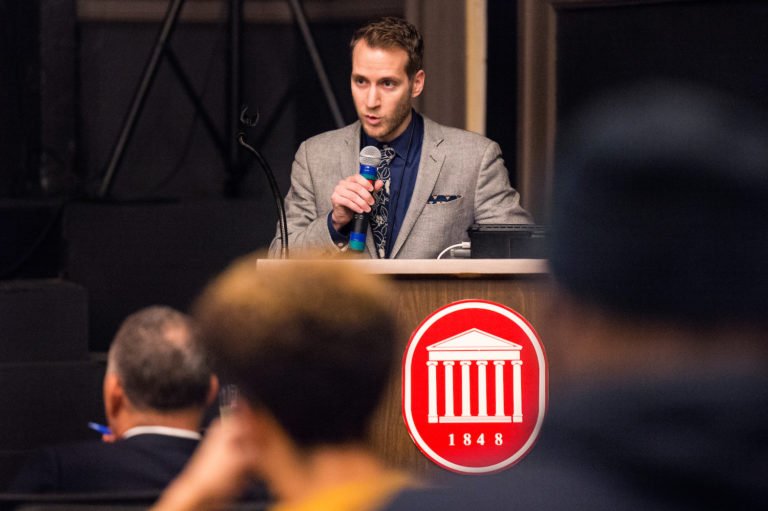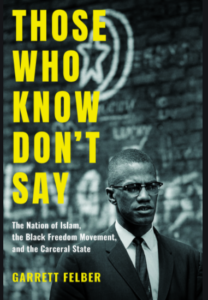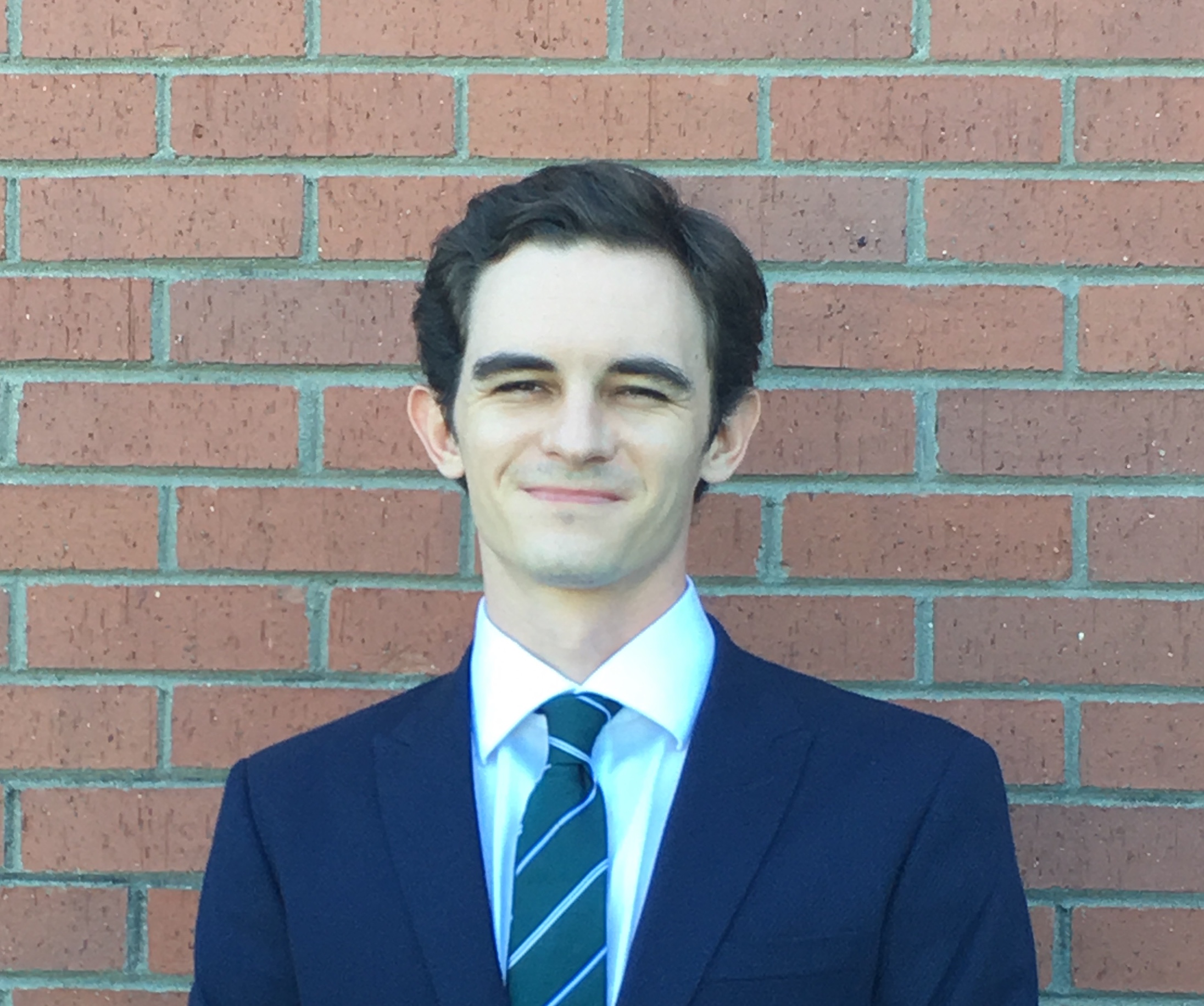
UM Fires History Professor Who Criticizes ‘Powerful, Racist Donors’ and ‘Carceral State’
During a period of what University of Mississippi faculty are calling a time of increasing paranoia, the university is set to terminate a celebrated professor of history. Today, sources provided the Mississippi Free Press with a copy of a termination letter sent to Dr. Garrett Felber, a tenure-track associate professor in the Arch Dalrymple III Department of History. Dr. Felber has undertaken an intimate study of the American carceral state and dedicates much of his time to educating and empowering those who are imprisoned in the United States.
History department chair Dr. Noell Wilson publicly praised Felber, author of “Those Who Know Don’t Say:The Nation of Islam, the Black Freedom Movement and the Carceral State,” in August after he was awarded a one-year fellowship at the W.E.B. Du Bois Research Institute at Harvard University’s Hutchins Center for African and African American Research, for which he is on leave from UM for the 2020-2021 academic year. Felber is also the co-author of “The Portable Malcolm X Reader” with the late Manning Marable who won a Pulitzer Prize for his biography of Malcolm X.

“Garrett is an indefatigable researcher and community builder whose knowledge of the carceral state stems not merely from archival digging, but also from his volunteer engagement with prisons as a teacher,” Wilson told a representative from University of Mississippi News four months ago. “… We are thrilled with this award because it both recognizes his national profile in the field of African American history and provides critical space for him to advance two pioneering interpretive projects.”
But in a Dec. 10 letter, Wilson told Felber that his last day as a tenure-track professor at the University of Mississippi will be Dec. 31, 2021.
“I am writing to inform you that I have recommended to the Dean of the College of Liberal Arts that you receive a one-year notice of nonrenewal pursuant to the University of Mississippi’s Termination of Untenured Faculty policy,” Wilson wrote to Felber. “Your employment with the University will end on December 31, 2021, and your employment contract will not be renewed after that date. At the pertinent time, I will notify you of your assigned responsibilities for the fall 2021 academic semester.”
Wilson referred frequently to what she claims is Felber’s refusal to speak with her, concluding her letter: “Respectfully, your effort to dictate or restrict the means by which I communicate with you is untenable.Your repeated refusal to talk with me makes it impossible for me to maintain a productive working relationship with you or supervise your faculty responsibilities.”
The history professor says, however,
that he did not refuse to communicate with Dr. Wilson, choosing to do it
in writing. Emails between the department chair and professor, who is
currently living in Oregon during the pandemic, show that Felber and
Wilson communicated multiple times throughout November and December.
Wilson also communicated with Felber through an administrative
assistant.
‘A Chilling Effect’
On Oct. 28, 2020, Felber announced on his Twitter feed that Wilson had rejected a $42,000 grant the department was awarded for a program called “Study and Struggle,” which the professor is involved with and describes as a political education project on mass incarceration and immigrant detention.
Felber tweeted that Wilson communicated to him that the project was political rather than historical and could potentially harm the history department’s ability to procure funding. According to that thread, this rejection came two days after the university publicized a $57,000 grant from FWD.us, an organization funded by technology companies that focuses on immigration and prison-systems reform.
In October, Felber made clear his position that the university’s relationship with powerful, racist donors was once again at play on the Oxford campus, tweeting, “The real issue is that (UM) prioritizes racist donors over all else. So it’s not some mythic politics v. history binary, but that this antiracist program threatens racist donor money. And racism is the brand. It’s in the name.”
Felber then described where the “Study and Struggle” grant money goes.

“This grant supports things like books for incarcerated participants, commissary for study groups to buy food and stamps to write pen pals, honoraria for our award-winning speakers, web design, and Spanish-translation, ASL teams, and close captioning for greater accessibility,” he tweeted.
“We’re now in the process of finding a new fiscal sponsor and removing all existing money from the University of Mississippi related to @study__struggle. We’re also looking to expand and deepen our work, so please reach out if you want to support radical study groups in prisons.”
The history professor told this reporter in October about the consequences of a university catering to the desires and complaints of racist donors.
“What it does, it has a chilling effect on the ability of faculty and other people within the university to do anti-racist work. Because the university seems to be responding to the will of donors who by my definition are racist,” Felber said.
The professor has had to reconcile an undertaking of anti-racist work at a university that has never properly faced and attoned for its racist past, he explained.
“It’s been a challenge for me. I just continue to do the work,” he said in the interview. “With this particular project, the work is going to happen regardless of whether the University of Mississippi wants to be affiliated with it. Unfortunately, what it does, it makes that work much more difficult, and the weight is on faculty and largely those of us who, like in my own case, are untenured and have the most other responsibilities and the least protections. I just keep doing the work that I know is important, and I don’t let the university define for me what constitutes important research, or activism, or teaching, or any combination of those things.”
Felber is known for being vocal about prominent university faculty members and organizations. In December 2019, he kicked off the “Making and Unmaking Mass Incarceration” conference at The Lyric near the Oxford Square by revealing that it was originally supposed to be at the Overby Center for Southern Journalism and Politics.
But organizers moved the conference,
Felber said, due to the center’s namesake, who teaches journalism at the
university, being on the board of directors of CoreCivic, the nation’s
second-largest for-profit private-prison company, since 2001. Felber
projected images of Overby and information about CoreCivic onto the
large overhead screen.
‘Increasing Levels of Paranoia on Campus’
When contacted by the Mississippi
Free Press in October, Dr. Noell Wilson referred inquiries about
Felber’s tweets and the declined grant to university communications.
Chief Marketing and Communications Officer Jim Zook did not make himself
available for an interview, but provided the following statement.
“The university’s decision to
decline Dr. Garrett Felber’s request to accept a grant for his
Mississippi Freedom Winter Project was made after several considerations
and in consultation with the relevant campus offices. Dr. Felber did
not follow the appropriate process for seeking external funding, a
process for which he has been briefed individually by representatives of
several administrative offices across campus. Dr. Felber submitted his
proposal to a private charitable foundation without the knowledge of his
department chair or other officials,” Zook wrote in the prepared
statement.
“If he had followed UM’s process of engaging with external funders, his department chair would have had the opportunity to advise him on how best to align his proposal with the Department of History’s research, teaching and service mission as articulated in its mission statement. As a public research institution, the university is committed to supporting the work of all faculty, being good stewards of both public and private grants and ensuring that all work on behalf of UM aligns with the mission of our collective schools and units.”
When asked through an email followup if donor dissatisfaction or a perceived threat to departmental fundraising influenced the decision to reject the grant money, university communications provided no response.
Felber’s termination comes during a tense time for faculty on the University of Mississippi campus or as a different UM professor told this publication today: “Feel free to note the increasing levels of paranoia on campus.” The Mississippi Free Press reported on Dec. 8, 2020, that the university was investigating the campus ombudsman after this publication’s series on racist, sexist and homophobic emails between the now-former journalism dean and donors resulted in a university effort to out whistleblowers who provided the emails to that publication. As a result, faculty members are saying that they are concerned that the university will access the ombuds’ confidential emails from staff and students, perhaps leading to reprisal.

This afternoon, Chancellor Glenn Boyce sent an email to faculty members indicating that he is looking for an interim ombudsman, but providing no details on the status of the current ombudsman.
This reporter also reported on Dec. 9 that the UM faculty senate had voted to call on Chancellor Glenn Boyce, who took the position in a cloud of campus controversy, to support sociology professor James Thomas as the Mississippi state auditor targets him for participating in #ScholarStrike, an anti-racism educational effort among college academics across the United States.
“I’m just so deeply dismayed by the willingness of faculty and administrators at all levels of the university who acquiesce to the will of these powerful racist, donors,” Felber told this reporter in October.
“Individually, these people will continue to tell me they respect the work, and appreciate it, and support it, and will until the push from above comes, and then they willfully misrepresent and do things like what my chair did,” Felber said then.
“It’s all very calculated and it feels—it’s not just structurally racist, it’s also personally betraying to say that you support these things, then when it actually matters they always acquiesce. It just has a profound effect on all of us doing the work to actually continue to do the stuff that matters and not get mired in calling the university out for its lies continually. The people that that harms the most are the people who benefit from these projects. People who are already excluded from the university through structural racism.”

Christian Middleton
FOCUS: Higher Ed • COVID-19 • Voting • Education • Race & Racism • Immigration • Food Security • LGBTQ • UM Emails • Policing
No comments:
Post a Comment